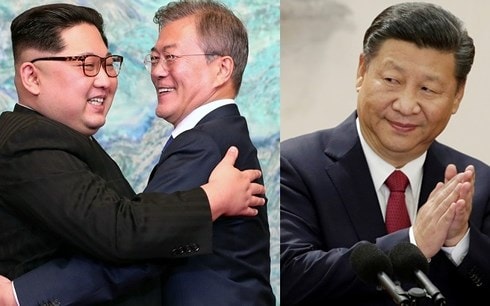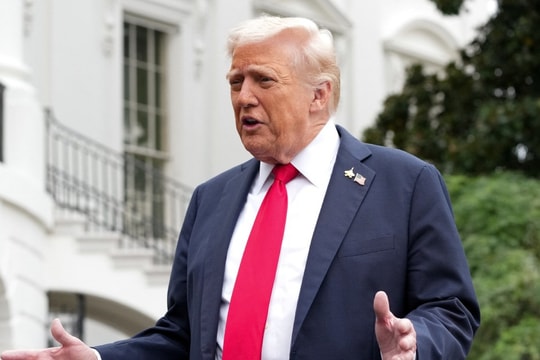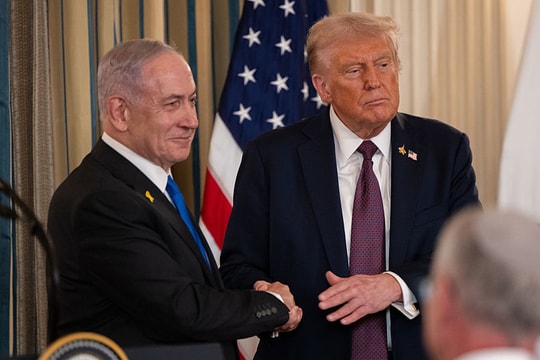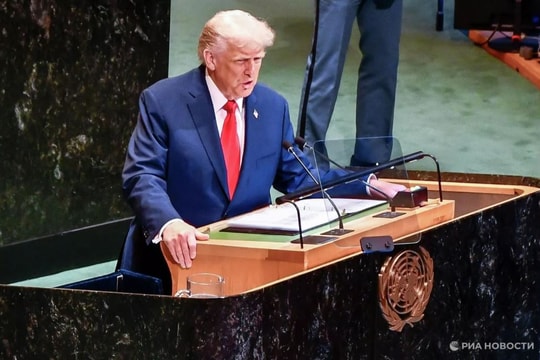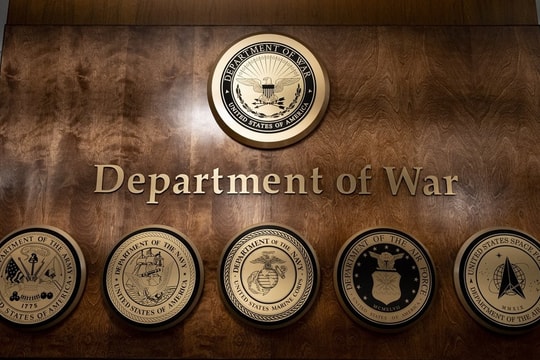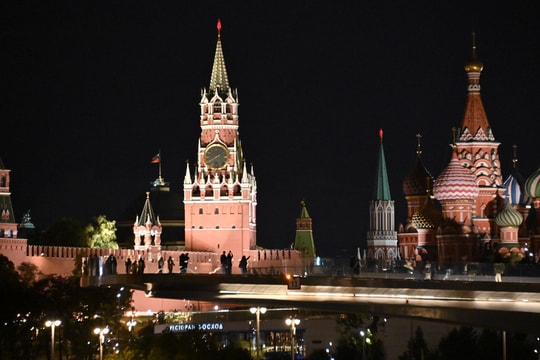Can North and South Korea join hands due to wariness of China?
The unprecedented summit between US President Donald Trump and North Korean leader Kim Jong-un in Singapore on June 12 was a big step forward for both Mr. Trump and Mr. Kim, and an important start for peace on the Korean peninsula.
If we look at the larger problem of the Korean Peninsula, this is only a modest start, because the two leaders of the US and North Korea have not signed any peace treaty to legally end the Korean War – which only ended in 1953.
|
| From left to right: North Korean leader Kim Jong-un, South Korean President Moon Jae-in, and Chinese President Xi Jinping. Photo credit: Getty and Nupi. |
That's itTrump-Kim Declarationgave few details about when and how to achieve “complete denuclearization of the Korean Peninsula” – the top priority of the Trump administration’s policy toward North Korea.
But the June 12 event is still very precious, as a popular saying in China says, “A journey of a thousand miles begins with a single step.” This summit is a small step to achieve a giant leap for lasting peace in Northeast Asia. In this sense, the two leaders traveled and met and they wrote history.
The complicated relationship between China and the Korean Peninsula
China and North Korea have a special relationship, so people will be very interested in the impact of this historic summit on China.
Before the June 12 event, Mr. Kim Jong-un had visited China twice to meet with President Xi Jinping. Another clear sign of China's important role in the US-North Korea Summit was that Mr. Kim flew to Singapore on an Air China Boeing 747.
It is important to place this conference in the historical context of the complex relationship between China and the Korean peninsula.
For many Chinese, their memories of China-North Korea relations may begin with China’s great sacrifices during the Korean War, and then (since the end of that war) its massive economic aid and almost unconditional diplomatic support for Pyongyang. And so it is natural to expect North Korea to reciprocate China’s “generosity” and friendship with gratitude and loyalty.
But for many North and South Koreans (on both sides of the demilitarized zone), their memories of China can be traced back to before the Korean War. For hundreds of years, the Korean Peninsula was a vassal state of the Chinese empire. The Korean Peninsula was then firmly within China’s orbit, until 1895, when China formally relinquished its rule over the peninsula following its defeat in the Sino-Japanese War of 1894.
Anti-Chinese sentiment on the Korean peninsula
The profound cultural and political influence of China has led to generations of deep resentment among Koreans towards China. The result of this anti-Chinese sentiment has been the rise of anti-Chinese Korean/Korean nationalism. A clear sign of this nationalism is the creation of the Korean/Korean alphabet, called Hangeul – a symbol of the desire to eradicate Chinese cultural influence.
Another sign of the poor relationship between Beijing and Pyongyang since the 1940s is that Kim Jong-un, who became North Korea's supreme leader in 2011, did not visit China until March 2018.
Tensions between Beijing and North Korean nationalism extend beyond North Korea to South Korea as well. Unpleasant historical memories of China may have played a role in South Korean President Moon Jae-in’s decision to meet Kim Jong-un twice this year.
In 2016, when South Korean President Park Geun-hye decided to move forward with the installation of the US Terminal High Altitude Area Defense (THAAD) system in response to North Korean missile tests, Beijing strongly protested against South Korea. The tense diplomatic standoff between China and South Korea over THAAD has brought their diplomatic relations to their lowest point since 1992, when the two countries established diplomatic ties. A nationwide boycott of South Korean businesses in China, including a sharp decline in the number of Chinese tourists to Seoul, has dealt a heavy blow to the South Korean economy.
Many South Koreans see Beijing's response as diplomatic and economic coercion, and a stark reminder of China's historical rule.
South Korean President Moon Jae-in, elected shortly after the THAAD controversy, may have additional reasons to promote relations with the North Korean leader. A unified Korean peninsula would certainly increase the chances of the peninsula’s independence from China.
The possibility of North and South Korea unifying to deal with China
Western sanctions have made North Korea almost entirely dependent on Beijing, a dependence that many in China believe has unrivaled strategic influence over Pyongyang.
But this dependence, combined with historical memories of Chinese rule, has led to resentment rather than gratitude. It is no wonder that a prominent Chinese historian asserted that North Korea “does not feel secure about China and has a revenge mentality.”
So China may not be the biggest loser, but it is also not the biggest winner from the US-North Korea summit. For Washington, its détente with Pyongyang significantly reduces Beijing's strategic value.
The US and North Korea “making up” will force China to reset its policy towards Pyongyang and Seoul.
If Beijing continues to ignore the power of nationalism to unify the two Korean Peninsulas, China may face a unified Korean Peninsula allied with the US./.

